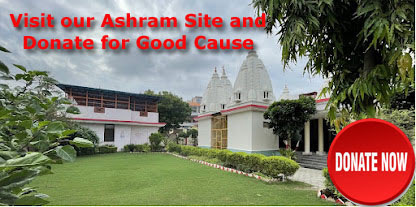Chapter 1
Dr. Shanker Adawal
L=hiq=kfndHkksxlkS[;tuua /kekZFkZdkeizne]
tUrwuke;उया lq[क्क्लिंफेना ‘khrkEcq?
केकिगेआ
okihnSoxzgkfniq.;ef[kya xsgkRleqRi}rs\
xsga iwoZeq’kfUr rsu focq/kk% Jhfo’odekZn;%आआ१आआ
वस्तुराज्वाल्लभ
Meaning-As per Vasturajvallabh, Lord Vishwakaram said that a place which blesses the native with son, affection from wife, directs him towards his duty, gives him all luxurious in his life, saves him from the heat of the Sun, rain and other natural calamities and is pious like temple is nothing but home and it is duty of the person to have these blessings only after constructing it.
This Shloka has made it clear that home is the first priority of the person and only after that he should think of his other duties. Our seers have written a lot of books on this subject and all of them emphasis upon having a home which should have a proper balance of all the five elements in a house.
Hinduism is of belief that our body also constitutes of five elements which are known as air, water, earth, fire and sky. On the same pattern there are five main deities in the Vedas which hold the ownership of every element. Vastu is nothing but balancing the five elements in their proper combination which creates a field of energy which supports life and its elements.
Vastu is the name of proper combination of five elements of life i.e. water, air, earth, fire and sky space. Vastu strives to maintain equilibrium as these elements influence, guide and change the living styles of not only human beings but also every living being on earth. Thus they influence our deeds, luck, behaviour and other basics of life. According to classics, every peace of land has some specific locations which are associated with some specific element. Each location has a god/goddess associated with it. If these forces are kept in their appropriate places, then there will be no disturbance. But if water is put in place of fire and wind in place of water or in any other combination, the forces will start acting accordingly and create disharmony and disturbance.
Vastu Shastra is believed to be the oldest science of Architecture. It is literally defined as – the Shastra (a branch of Vedic Literature), which deals with the knowledge of the topography and the design of any construction to be built for residence, worship or any other purpose. The word “vastu” in Sanskrit language is derived from the verb “vasa”, which means living, residing, lodding, etc. The word `vastu’ is defined in “Amara Kosha” as – Graharacanavacchinnabhumeh | Meaning: the plot of land suitable for the construction of a house for living is (the base of) vastu. According to the “Halayudha Kosha”-
Vastu Samkshepato Vakshye rahadau Vighnanashanam | Ishanakonadarabhya Hyekashitipade Tyajet||
Meaning: In short, vastukala (the art of vastu) is the art of house construction, which teaches perfect (science and techniques of) designs starting from the ishana (east-north) angle so as to protect the house from all natural calamities and other adversities.
As details given in Samarangana Sutradhara of Bhoj Raja, Vastu Shastra teaches us above how we can lay out our house design so that we as human beings can get the maximum benefits of the natural forces given-off by nature. Before we get into details about vastu shastra, let us first have a clearer concept about the five elements and its significance to human life.
Continue...
Shanker Adawal
Profile: www.connectingmind.com
Research work and articles on Bhrigu Nadi astrology: www.shankerstudy.com
Published articles on Articlesbase.com
or search keyword "shanker adawal" in google search for published articles
Published articles on Newspapers: http://tinyurl.com/2wyxtfk
Year 2012 for you: http://tinyurl.com/2012foryou


































No comments:
Post a Comment